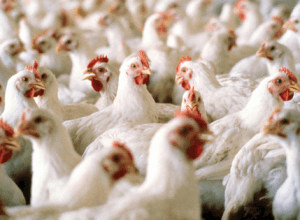Broiler revitalization policy needs parliamentary approval – Association
 Mr Napoleon Agyemang Oduro, the Vice Chairman of the Ghana National Association of Poultry Farmers, has said there is the need for the broiler revitalization policy to be subjected to an expedited Parliamentary scrutiny.
Mr Napoleon Agyemang Oduro, the Vice Chairman of the Ghana National Association of Poultry Farmers, has said there is the need for the broiler revitalization policy to be subjected to an expedited Parliamentary scrutiny.
He said the document which was launched by the Association in partnership with the Ministry of Agriculture last year, could not be operationalized in its current form because “it had not gone through the various processes to become a policy”.
Mr Agyemang Oduro said this during a sensitization meeting on the Ghana Broiler Revitalization Policy Documentation in Dormaa Ahenkro.
The meeting, which attracted poultry farmers in the area and representatives from other regions in Ghana, was under the theme: “National Broiler Revitalisation for 40 per cent import substitution”.
The Vice Chairman said although the Ministry of Agriculture had a copy of the document, it had not been forwarded to “Parliament for the inputs of the various Select Committees before the President could finally give his accent”.
This Parliamentary consultations, he said, was long overdue, and derailing efforts of the Association to start working towards the national objective for the 40 per cent broiler import substitution.
He said this is equivalent to the production of 65 million birds locally and this would create employment and improve the socio-economic conditions of poultry farmers in the country.
He appealed to the government to stop paying lip services and make realistic budgetary allocations to the Association.
“As we speak, not even a single budgetary allocation has been redeemed by the Association from government to advance our aims”, he said.
Mr Victor Oppong Adjei, the National Chairman, said there were serious challenges regarding the consumption of eggs in the country saying currently the consumption rate was 12 eggs per head per annum and this is low compared to a country like Mexico which stands at 345 eggs per head per annum.
He said chicken marketing was also a challenge as “95 per cent of chicken were imported, while five per cent were only locally produced”.
Source: GNA
